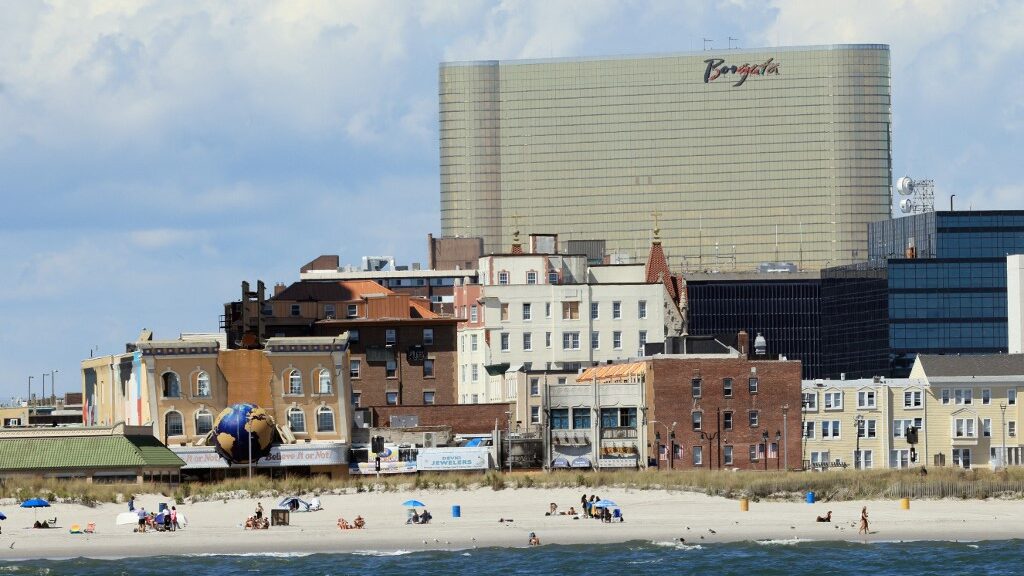
The battle to clear the air in New Jersey casinos took another turn.
The primary labor union representing casino workers in Atlantic City, along with the state’s attorney general, is jointly requesting a judge to reject a lawsuit initiated by another union that aims to prohibit smoking in the city’s nine casinos.
Let’s take a closer look at the request and analyze how it could impact top-rated sportsbooks in the region.
Blowing Smoke
The lawsuit was filed last month by a grassroots group of other casino workers, who say their health is being jeopardized by the second-hand smoke they breathe while on the job. The group wants the court to overturn New Jersey’s indoor smoking law, which bans smoking almost everywhere except casinos.
The Local 54 branch of the Unite Here union argues that a smoking ban could result in job losses for many of its 10,000 members, jeopardizing their ability to provide for their families. In their legal documentation, the union emphasizes that a complete smoking prohibition would endanger the livelihoods, wages, health benefits and retirement plans of its members and their dependents.
Right now, smoking is permitted on 25% of the casino floor. Although these smoking areas aren’t all connected, the concern is that secondhand smoke spreads throughout the entire casino floor to different extents.
Union Says a Casino Smoking Ban Would Be “Catastrophic”
Donna DeCaprio is president of Local 54, the union representing hotel workers, beverage servers, baggage handlers, public area cleaners and other workers at the nine casinos. “We support the health and safety of our members, and believe that improvements to the current work environment must be made,” she told NBC Philadelphia. “A balance needs to be reached that will both protect worker health and preserve good jobs.”
DeCaprio believes that a complete smoking ban would be ”catastrophic” for Atlantic City. She mentioned that a large portion, between 50 to 72%, of the money casinos make from in-person gamblers comes from the smoking areas.
It’s Economic Concerns vs. Health Concerns in New Jersey
New Jersey Attorney General Matt Platkin is advising the state Superior Court to reject a request from casino workers for a temporary ban on smoking. He believes that such a big change, like banning smoking in casinos, shouldn’t be decided through a temporary order like this.
Platkin, who is representing Democratic Governor Phil Murphy and the state health department, says that New Jersey’s indoor smoking law treats everyone fairly and doesn’t violate anyone’s rights to safety, according to the Associated Press.
Nancy Erika Smith, the lawyer who filed the lawsuit, was surprised by Local 54’s position. She said, “I’ve never seen a union fight against the health and safety of their members, not once. Fortunately, Unite’s arguments about money, even though they’re not true, don’t really matter for the legal question we’re dealing with,” as reported by the AP.
This Wouldn’t Be the First Casino Smoking Ban in Atlantic City
In 2008, Atlantic City’s City Council briefly enforced a complete smoking prohibition. During that period, casino revenues dropped by 19.8% within the first week. This decline prompted the establishment of the current policy allowing smoking on 25% of the casino floor.
These employees, particularly numerous table games dealers, argue that transitioning to a smoke-free environment would draw in sufficient customers to compensate for the departure of smokers who choose other venues.
The ongoing struggle persists with no clear end in sight. State Sen. Joseph Vitale introduced a bill to ban smoking in casinos, which advanced through the upper chamber’s committee but stalled there. In the Assembly, a companion bill is also struggling to make progress. This echoes a recurring pattern, as similar legislation has been proposed in every session for nearly two decades.
We’ll see if that changes this year.















